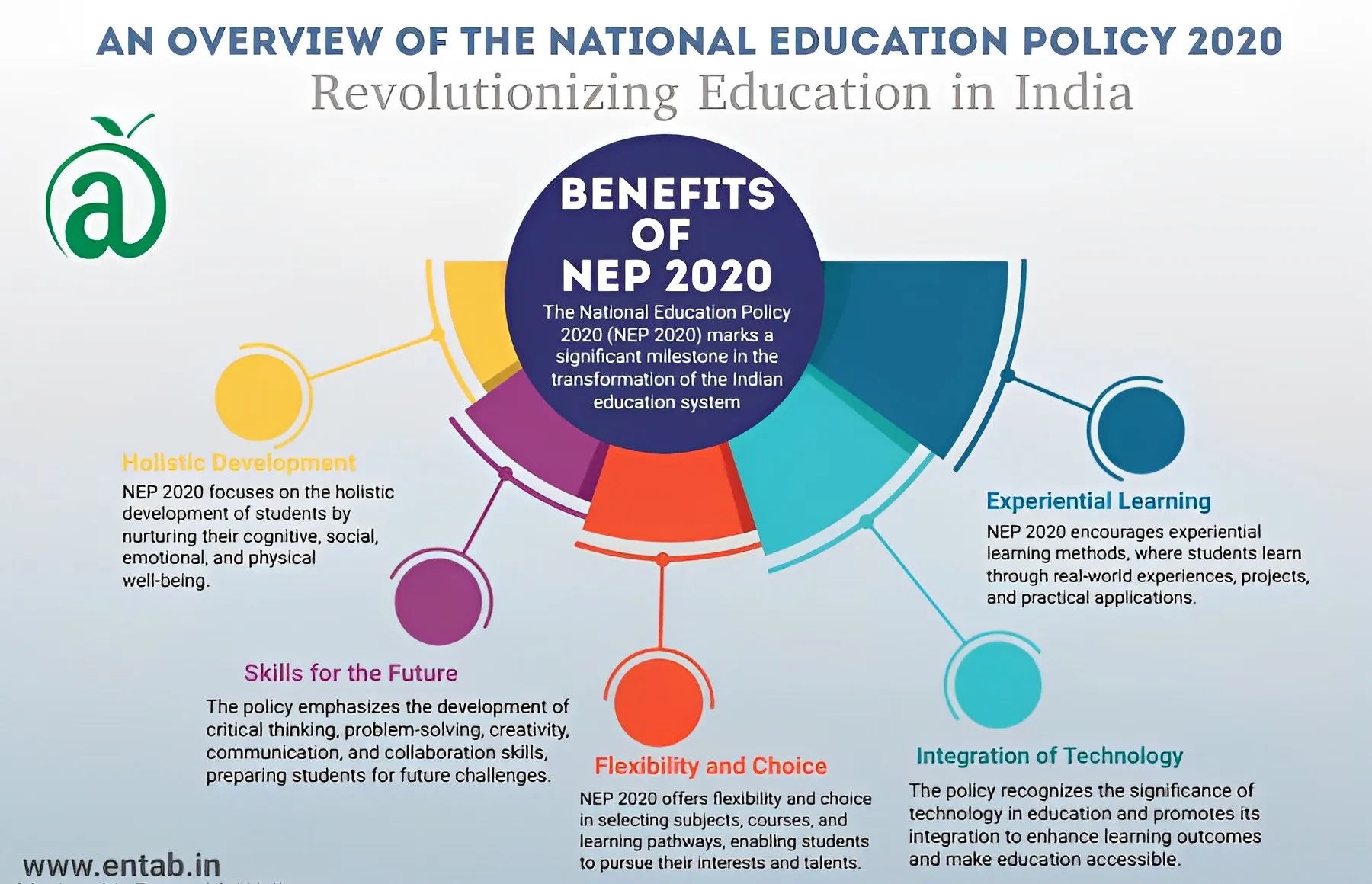
Introduction:
The National Education Policy 2020 (NEP 2020) marks a significant milestone in the transformation of the Indian education system. With its visionary approach, NEP 2020 aims to address the evolving needs of students, align education with the demands of the 21st century, and foster holistic development. In this blog, we will delve into the meaning, objectives, importance, and benefits of NEP 2020. Additionally, we will explore how Entab's experiential learning assets can support students and schools in implementing the policy effectively.

Meaning and Objectives:
NEP 2020 reimagines the education landscape by emphasizing inclusivity, flexibility, and quality. It envisions an education system that promotes critical thinking, creativity, and holistic development. The key objectives of NEP 2020 are to provide equitable access to education, promote experiential and multidisciplinary learning, enhance teacher training and professional development, ensure the integration of technology, and establish a flexible and learner-centric approach.
NEP 2020 holds immense importance as it addresses the shortcomings of the existing education system and sets a new direction for educational reforms. It aims to create a generation of learners who are well-prepared for the complexities of the modern world, possess essential skills, and have a deep understanding of Indian heritage and values.
Benefits of NEP 2020:
Holistic Development: NEP 2020 focuses on the holistic development of students by nurturing their cognitive, social, emotional, and physical well-being.
Skills for the Future: The policy emphasizes the development of critical thinking, problem-solving, creativity, communication, and collaboration skills, preparing students for future challenges.
Flexibility and Choice: NEP 2020 offers flexibility and choice in selecting subjects, courses, and learning pathways, enabling students to pursue their interests and talents.
Integration of Technology: The policy recognizes the significance of technology in education and promotes its integration to enhance learning outcomes and make education accessible.
Experiential Learning: NEP 2020 encourages experiential learning methods, where students learn through real-world experiences, projects, and practical applications.
Multidisciplinary Learning: The policy promotes multidisciplinary learning, enabling students to explore various subjects and develop a holistic understanding of interconnected knowledge domains.
Usage of Experiential Learning Assets by Entab:
Entab's experiential learning assets provide invaluable support to students and schools in implementing NEP 2020 effectively. These assets include virtual reality experiences, interactive simulations, multimedia content, and educational games. They facilitate hands-on learning, critical thinking, and problem-solving skills development. By using these assets, students can engage in immersive learning experiences that align with the principles of NEP 2020. Teachers can incorporate these assets into their lessons to enhance student engagement, facilitate personalized learning, and promote a deeper understanding of concepts.
Conclusion:
The National Education Policy 2020 is a transformative step towards creating a dynamic and inclusive education system in India. It focuses on holistic development, skill-building, flexibility, and the integration of technology. By aligning with NEP 2020, schools can empower students to become lifelong learners and thrive in a rapidly changing world. With the support of Entab's experiential learning assets, students can engage in immersive and interactive learning experiences that align with the objectives of NEP 2020, fostering their overall development and academic success.